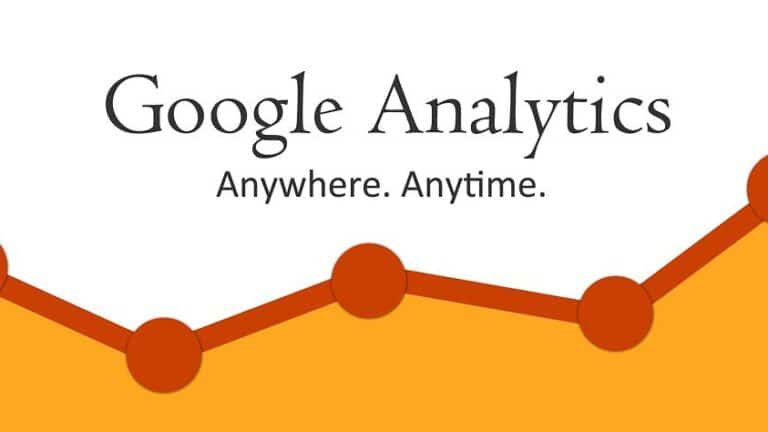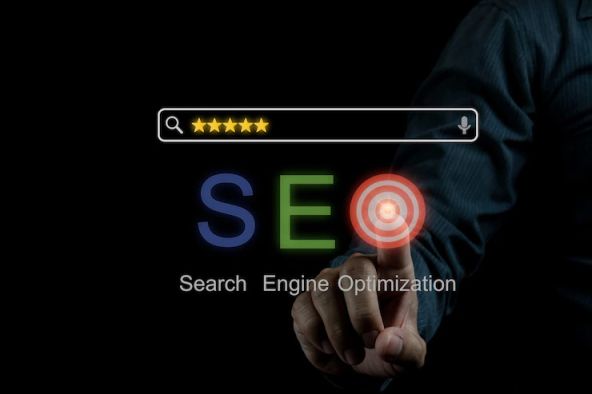To the everyday user, Google’s program might sound pretty unremarkable and this why users want to know what is google analytics. On searching ‘corgi’, a bunch of related results pops out. One of the suggestions is of 10 Corgis Facts. You will also find a Knowledge Panel which features the lifetime of the Pembroke corgi. Next, you will notice a dropdown for queries called ‘corgi butt’. Well, these are not cognitive leaps. Google Search supplies result from which value. Most reasonable people value corgi butts.
It is interesting to know that Google’s search algorithm did not have a keen understanding of what usually people find valuable. It’s evolved quite a bit over the years. Analytics for a website is in itself a diverse topic. Today we are going to focus on picturing that evolution.
Mentioned below is a list of the foremost powerful and helpful Google algorithm updates since 2003.
- Google Fred Update – March 2017
- Google Intrusive Interstitial Penalty – January 2017
- Google Penguin 4.0 – September 2016
- Google “Possum” Update – September 2016
- Google Rank Brain – October 2015
- “Mobilegeddon” – April 2015
- Google Pigeon Update – July 2014
- Google Hummingbird – August 2013
- Google Knowledge Graph – May 2012
- Google Penguin – April 2012
- Google Panda – February 2011
- Google Caffeine – June 2010
- Google Suggest – August 2008
- Google Universal Search – May 2007
- Google Personalized Search – June 2005
- Google Florida Update – November 2003
- Google Boston Update – February 2003
- Interesting Facts
- Conclusion
- FAQs
Google Fred Update – March 2017
- In order to understand what is google analytics, there are some tools that find an important place in this discussion such as Google’s “Fred” Update came into existence in March 2017.
- It removes those sites which weigh monetization over user experience. ‘Fred’ was named as it is by Google analytics expert Gary Illyes. It is found out that the results of the update are not arbitrary.
- There are different analytics for website that online businesses implant. Sites that have less content which is directed towards conversions, by using on-page advertising strategy often end up losing organic search traffic and as per reports, some sites quote up to 90% traffic loss.
Google Intrusive Interstitial Penalty – January 2017
Intrusive Interstitial Penalty was launched by Google in August 2016. They said that if the content is not easily accessible on making the transition from mobile, then the search results won’t rank high. In January 2017 the update was rolled out while on the other hand, Google gave the following samples of techniques that could negatively impact the organic search ranking of a page:
- Showing a popup that covers the foremost content, either immediately after the user navigates to a page from the search results, or while they’re searching through the page.
- Displaying a standalone interstitial that the user must dismiss before accessing the most content.
- employing a layout where the above-the-fold portion of the page appears almost like a standalone interstitial, but the first content has been inlined underneath the fold.
Google Penguin 4.0 – September 2016
Google announces Penguin 4.0 in September of 2016. There are two pointers for the first Penguin update:
- Penguin goes real-time and becomes a neighborhood of Google’s core algorithm.
- Penguin now devalues “spammy” links at a granular level, reversing earlier-enforced site-wide penalties.
Google “Possum” Update – September 2016
Possum got its name from the ratings it has on Google My Business listings. Google came up with refining a location filter that would filter out businesses that supported certain criteria. To have an analytics for website and to get a fair idea on what is google analytics, it is necessary to know the impact that Possum has local search rankings because:
- Businesses outside of a city’s limits experience higher rankings for local search keywords. Before Possum made its appearance, the businesses used to face a difficult time ranking their keywords well.
- A replacement location filter filters out locations that share an equivalent address.
- The physical location of the person typing the query features a larger impact on results.
Google Rank Brain – October 2015
Rank Brain as defined by Bloomberg is an AI machine-learning system that has been incorporated into Google’s core algorithm. In the initial months after its launch Rank Brain, became Google’s third most important ranking signal. It gives Google’s search algorithm the ability to grasp relationships between words, and present results for absolutely new queries.
“Mobilegeddon” – April 2015
In February 2015 Google announced to expand mobile–friendliness in terms of ranking signal. The announcement mentioned that the new algorithm “Mobilegeddon” would sleep in April of the same year. It would be a great tool to provide enhanced mobile-friendly websites and relevant app content in search results. Thus, it would lead to improved search visibility.
Google Pigeon Update – July 2014
Analytics for website is important concern for businesses. In July of 2014, Google released a big local search algorithm update. The new local algorithm called Pigeon would hold deeper into Google’s web search capacity and would include core algorithm ranking signals such as the Knowledge Graph, spelling correction, synonyms, etc.
Google Hummingbird – August 2013
- Google actively understands that the recent queries are more conversational and this is because people have started treating their desktops and devices like human beings. Hence, to catch up and properly understand the user intent, Google released Hummingbird during the Summer of 2013.
- Google Hummingbird is an important highlight to understand what is google analytics.
- Hummingbird can discern both the context and the intent while returning results for a search. According to Matt Cuts from Google; around 90% of the search results are affected.
Google Knowledge Graph – May 2012
- The Knowledge Graph came into existence in May 2012. The objective here was crisp and clear. It would assist the users to discover information much faster and easier.
- According to Google, this tool will understand the real-world entities and their corresponding relationships. The Knowledge Graph contains around 500 million objects and 3.5 billion facts about relationships between those objects.
Google Penguin – April 2012
- Users search for what is google analytics to be better off in terms of expanding their business. Penguin was announced by Google in April 2012.
- It works toward an objective to provide users high-quality sites. Penguin will lower the rankings for sites that violate quality guidelines put forward by Google. It is observed that keyword stuffing and link schemes have seen a reduction in organic search traffic.
- Google distinguishes between ‘white hat SEO’ from ‘black hat webspam. Meanwhile, it encourages website designers to create top-quality websites that make shower positive user experiences.
Google Panda – February 2011
Panda got its name from an algorithm developer engineer. As a response to complaints against a high ranking of low-quality content above high-quality sites, Panda observes and low ranks those sites which have thinner content or higher ad-to-content ratios.
Google Caffeine – June 2010
Caffeine was launched in June 2010. Since analytics for the website is vital for success of firms hence Google Caffeine is useful as it can furnish around 50 percent of fresh search results, and this happens to be the maximum web page collection so far by Google. Before Caffeine came into the picture, Google’s index would layer out numbers that are refreshed faster as compared to others. Caffeine is here to present fresher information than ever done before.
Google Suggest – August 2008
Google Suggest was launched in August 2008. It is equipped to look into aggregate searches concerning a given query, then it maintains a list of such popular searches holding that question in a dropdown panel. Google Instant was shut down in 2017 because of complications faced by mobile users.
Google Universal Search – May 2007
In May of 2007, the Universal Search was discharged. Through this tool, Google answers to tab blindness. Universal Search provides a better and much diverse SERP by collating results from all Google verticals. In this way what earlier used to be a 10-link result page now became a thing of the past.
Google Personalized Search – June 2005
Personalized Search was launched in 2005 and it is used to analyze a user’s search history for offering better-personalized results. Previous attempts at personalization drew on customer settings and profiles. Personalized Search calculates the time that Google has directly tapped into what its users search.
Google Florida Update – November 2003
The update of the Florida algorithm was used before algorithm updates were a thing. There is a notion that Google’s algorithm is quite a task for webmasters who have to retain their organic rankings which in itself can be a potential source of employment. While Florida depends on older tactics like keyword stuffing, SEO can be a solution. Webmasters everywhere are befuddled. SEO becomes a necessity.
Google Boston Update – February 2003
Boston was launched in 2013 at SES Boston in an engineering conference. Google aims to vary its algorithm each month. Later it may abandon this goal as per day-to-day changes.
Interesting Facts
- People used to wonder what is google analytics, well it is considered the most famous Web Analytics tool across the world.
- Germany banned Google Analytics because it was against EU cookie law.
- Google Analytics can be used in 40 different languages.
- As per current reports, there are around 220 Google Analytics Certified Partners across geographies.
- Google Analytics also has a premium version for Adobe’s SiteCatalyst or IBM’s Coremetrics users.
Conclusion
With the rapid increase in technology, Google is playing its part for years. Businesses want to gain maximum benefit from what Google has to offer them and hence people end up searching for what is google analytics or what is analytics for the website. Google Analytics offers an SDK that gathers usage data from iOS and Android app. It has helped businesses and marketers to build a strong presence and since its inception, it has gone through many versions for generating better insights.
FAQs
- What is Google Analytics?
Google Analytics offers statistics and simple analytical tools for marketing and SEO purposes. It is also used to analyze website performance and visitor engagement.
- Does Google Analytics involve privacy issues?
Google Analytics involves websites to issue privacy policy as it would store data about your users later.
- Are the results produced by Google Analytics helpful?
If Google Analytics is used correctly then it will measure 95% of actual visitors.





